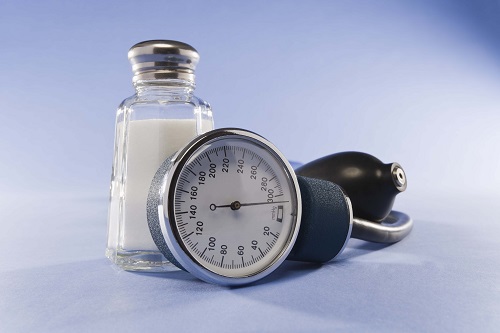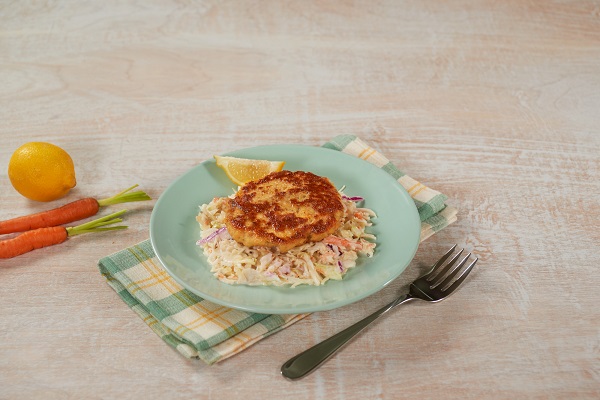The Plant-Based Eating and High Blood Pressure Link

Plant-based diets and high blood pressure: Can eating more plants prevent or help treat high blood pressure?
The short answer is yes.
Plant-based diets are all the rage these days, gaining in popularity for a variety of reasons. Topping the list are the health benefits, including weight loss and reduced risk of cancer and heart disease. High blood pressure (aka hypertension) is very common in the general population, especially in those with chronic kidney disease (CKD). It is a serious and often silent condition that can critically damage the heart and kidneys. High blood pressure is also linked to cancer, stroke and diabetes.
People who follow vegetarian diets generally have lower blood pressure than people who eat animal products (1). While there is a broad range of vegetarian diets, complete avoidance of meat is a common theme. For more details on the types of vegetarian diets read Vegetarian Primer for the Kidney Diet.
Maybe you’re not ready to go cold turkey (or cow) on eating meat or would find it difficult to meet your protein needs on plants alone. Do you really need to give up that juicy steak or slice of cheese to realize the health benefits of plant-based diets?
Thankfully, the answer is no. Here we will look at two popular plant-based diets that also allow meat and dairy. Both diets are backed by science to prevent or lower blood pressure (2, 3). Sound too good to be true? Stay with me, it only gets better.
DASH Diet
The Dietary Approach to Stop Hypertension (DASH) diet emphasizes vegetables, fruits, whole grains and low-fat dairy foods. It includes meat, fish, poultry, nuts and beans. The diet limits food and drinks with added sugar, red meat and added fats.
The DASH diet is a lower sodium diet and rich in nutrients that help lower blood pressure, such as potassium, calcium and magnesium. It is also low in saturated fat and total fat. In addition to lowering blood pressure, the DASH diet has also been shown to slow the progression of CKD (4) .
This is what the DASH diet looks like, broken down by food group per day for an average adult consuming 2,000 calories:
- Grains: 6 to 8 servings
- Vegetables: 4 to 5 servings a day
- Fruits: 4 to 5 servings
- Dairy: 2 to 3 servings
- Lean meat, poultry and fish: 6 ounces (or less) a day
- Nuts, seeds and legumes: 4 to 5 servings a week
- Fats and oils: 2 to 3 servings a day
- Sweets: 5 servings or fewer a week
The DASH diet can be modified to reduce potassium and phosphorus if needed.
Mediterranean Diet
The Mediterranean Diet comes to us from the nutrition and lifestyle approaches common to the Mediterranean region of the world. The Mediterranean Diet is broken down like this and also incorporates lifestyle factors:
- High in olive oil, legumes, unprocessed cereals, fruits and vegetables.
- Moderate intake of fish, dairy products and wine.
- Limits red or processed meat.
- Regular outdoor physical activity, adequate water and rest.
For additional information about the Mediterranean Diet and to see the Mediterranean Diet Pyramid visit oldwayspt.org.
Overall, the DASH diet is very similar to the Mediterranean diet. The common benefits of both diets include:
- Plant-based with 8 to 10 combined servings of vegetables, fruit, grains, nuts and seeds daily.
- Nutrient rich, high in vitamins, minerals and phytochemicals.
- High in fiber, which is known to have beneficial effects on the gut and microbiome and reduce inflammation (5).
- Nutritionally balanced, flexible and are sustainable over the long term (5).
- Emphasizes a healthy lifestyle with physical activity, plenty of rest and social interactions.
Limited Foods
Equally important is what these diets limit or encourage you to avoid:
- Added sugar
- Highly processed packaged food
- Processed and high fat meat
- Saturated and trans fats
- Excess red meat
Potassium and Plant-based Diets
For those in later stages of CKD and/or on dialysis, kidneys don’t properly regulate potassium. As a result, high potassium produce and dairy products are often limited. It is important to work with a nephrologist or renal dietitian to individualize your diet for safety and to choose low potassium fruits and vegetables. This modified Mediterranean Diet pyramid provides a blueprint on how to modify the diet for those with CKD.

Recipes
Check out these recipes from Davita.com that are DASH and Mediterranean diet friendly!

Keeping blood pressure in normal range is critical in preventing complications such as progression of CKD, heart attack and stroke. Always take prescribed medications and modify risk factors like smoking and obesity. Following plant-based diets like the DASH or Mediterranean eating patterns can go a long way in helping achieve better blood pressure control and improve your health.
References
- https://www.ncbi.nlm.nih.gov/pmc/articles/PMC5466938/pdf/jgc-14-05-327.pdf
- Moore T, Svetkey L, Appel L, Bray G, Volmer W. The DASH Diet for Hypertension. New York, NY: Simon & Schuster; 2001.
- Bach-Faig A, Berry EM, Lairon D, et al. Mediterranean diet pyramid today. Science and cultural updates. Public Health Nutr. 2011;14(12A):2274-2284.
- Asghari G, Farhadnejad H, Mirmiran P, Dizavi A, Yuzbashian E, Azizi F. Adherence to the Mediterranean diet is associated with reduced risk of incident chronic kidney diseases among Tehranian adults. Hypertens Res. 2016; http://dx.doi.org/ 10.1038/hr.2016.98.
- https://www.ahajournals.org/doi/epub/10.1161/CIRCULATIONAHA.116.024545
Additional Kidney Diet Resources
Visit DaVita.com and explore these diet and nutrition resources:
- DaVita Food Analyzer
- DaVita Dining Out Guides
- DaVita Kidney-Friendly Recipes
- Today’s Kidney Diet Cookbooks
- Diet and Nutrition Articles
- Diet and Nutrition Videos
- Kidney Smart® Virtual Classes
This article is for informational purposes only and is not a substitute for medical advice or treatment. Consult your physician and dietitian regarding your specific diagnosis, treatment, diet and health questions.

Recent Comments